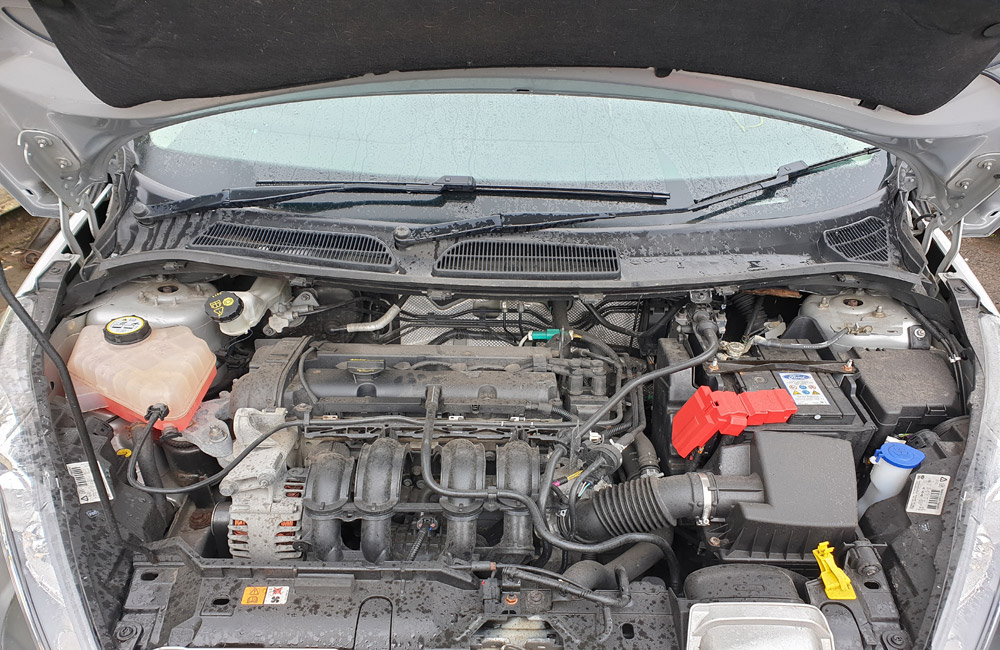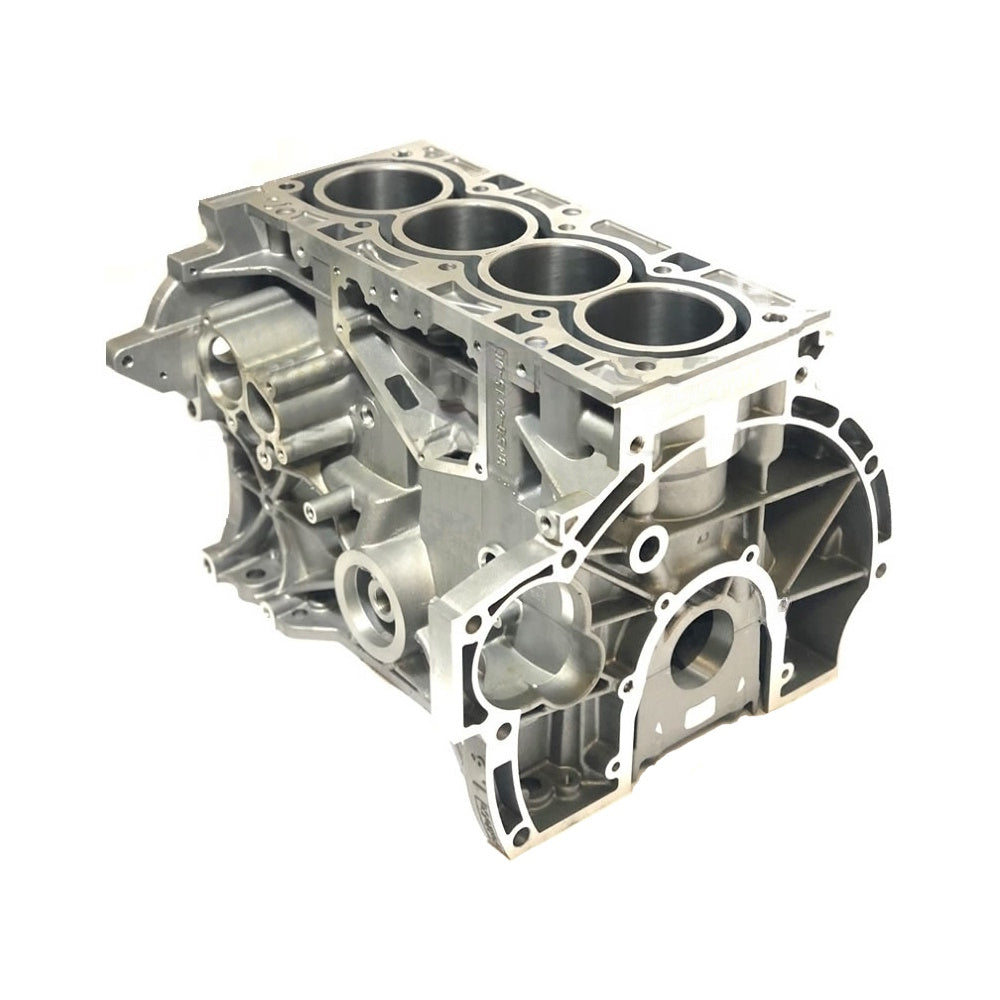Protect Your Investment with Proper Ford Fiesta Engine Maintenance
Protect Your Investment with Proper Ford Fiesta Engine Maintenance
Blog Article
Unlocking the Power of Engines: A Comprehensive Guide to Performance and Performance
Comprehending the elaborate auto mechanics of engines is important for both performance lovers and everyday drivers. By examining key metrics such as horsepower and torque, one can value exactly how adjusting methods enhance performance while resolving ecological problems. Furthermore, regular upkeep plays a critical function in sustaining optimal performance in time. As the automotive landscape changes towards electrification and advanced technologies, the question arises: just how can we successfully adjust to these adjustments while maximizing engine capabilities? The answers may redefine our technique to engine performance and performance in methods that are both informing and essential.
Comprehending Engine Fundamentals
What constitutes the fundamental mechanics of an engine? At its core, an engine is an equipment created to transform gas right into power through a collection of regulated surges or burning processes. The key parts consist of the cyndrical tube, piston, crankshaft, camshaft, and valves. The cylinder works as the chamber where burning takes place, while the piston relocates within the cylinder to transform the power from combustion into straight motion (ford fiesta engine).
The crankshaft after that changes this linear motion right into rotational power, which inevitably powers the lorry. The camshaft manages the opening and closing of the valves, controling the consumption of air and gas and the expulsion of exhaust gases. Furthermore, the engine counts on a very carefully calibrated fuel-air mixture, ignition system, and cooling system to make sure optimum performance and efficiency.
Understanding engine fundamentals likewise entails recognizing the relevance of engine cycles, such as the four-stroke cycle, which includes consumption, compression, exhaust, and power strokes. Each stage is vital in making sure the engine works efficiently and efficiently. Mastery of these basic auto mechanics lays the groundwork for checking out a lot more complex engine characteristics and efficiency metrics, vital for optimizing both power output and performance.
Secret Performance Metrics
Key efficiency metrics are important for reviewing an engine's effectiveness and power output, providing valuable understandings for both customers and manufacturers. These metrics function as benchmarks for engine efficiency, enabling educated choices in manufacturing, investing in, and layout.
One of the key metrics is horse power, which quantifies the engine's capability to carry out work over time. Torque, gauged in pound-feet, is an additional essential metric that indicates the engine's rotational pressure, directly influencing acceleration and lugging capability. Gas performance, normally measured in miles per gallon (MPG) or litres per 100 kilometers (L/100km), assesses exactly how successfully the engine converts fuel right into motion, impacting ecological considerations and operational costs.
In addition, thermal effectiveness procedures exactly how well an engine converts gas energy into helpful job, revealing understandings right into energy losses largely via heat. Emission levels, consisting of CO2 and NOx, are likewise vital, reflecting the engine's environmental influence and conformity with regulatory criteria.

Tuning Strategies for Efficiency
Tuning techniques play a considerable duty in improving engine effectiveness by maximizing efficiency metrics identified in earlier conversations (ford fiesta engine). Different approaches exist to fine-tune an engine, each adding to enhanced gas economic climate and reduced emissions
One reliable strategy is readjusting the air-fuel proportion, making sure the engine runs within the optimum burning regime. A leaner combination can enhance gas efficiency, yet it has to be balanced to avoid misfires or engine knock. Additionally, reprogramming the engine management system can rectify specifications such as ignition timing, which better boosts efficiency while keeping power outcome.
Another vital technique includes modifying the consumption and exhaust systems. Upgrading to high-performance air filters and exhaust headers can lower back stress, assisting in better air movement. This enables the engine to breathe more freely, causing boosted combustion effectiveness.
Furthermore, the implementation of sophisticated adjusting devices, like dyno screening, offers exact data that allows targeted adjustments. Consistently checking these performance metrics ensures try this website that adjusting efforts generate the wanted performance results. Collectively, these techniques not only boost engine efficiency however also add to lasting sustainability in engine operations.
Maintenance for Optimal Efficiency
Normal engine maintenance is necessary for achieving optimum efficiency and long this contact form life. A well-kept engine not just runs successfully but additionally minimizes the risk of expensive repair work and failures. Secret elements requiring regular interest consist of oil, filters, belts, and ignition system.
Transforming the engine oil at recommended intervals is critical, as oil lubes moving components and protects against getting too hot. Changing oil and air filters makes sure that contaminants do not harm engine function. Overlooking these elements can cause lowered effectiveness and prospective engine damages.
In addition, inspecting and changing worn belts and tubes is essential to stop abrupt failures. Timing belts, specifically, should be changed according to the supplier's timetable to stay clear of catastrophic engine damage.
Glow plugs need to additionally be inspected and changed as necessary, because they play a crucial duty in ignition and fuel efficiency.
Future Trends in Engine Innovation
Embracing improvements in modern technology, the future of engine layout is positioned to reinvent efficiency and performance across various applications. Crossbreed and fully electric powertrains are coming to be significantly traditional, using decreased exhausts and boosted gas performance.
Furthermore, advancements in materials scientific research are causing lighter, stronger components that enhance engine performance while lowering power consumption. Advanced production techniques, such as 3D printing, enable the production of complicated geometries that improve air movement and thermal management, thus enhancing combustion procedures.
Additionally, the integration of synthetic intelligence and equipment discovering is set to change engine diagnostics and performance tuning. These modern technologies can evaluate huge amounts of data in actual time, allowing predictive upkeep and tailored performance improvements.
Conclusion
In final thought, opening the power of engines needs a comprehensive understanding of their mechanics and performance metrics. Carrying out effective tuning strategies and sticking to regular maintenance methods considerably enhance engine capacities. As the automotive landscape advances, welcoming future fads in innovation, including electrification and advanced production, will be essential for enhancing efficiency and effectiveness. This thorough approach not just benefits fanatics yet additionally adds to sustainable solutions in the realm of auto engineering.
In addition, the engine depends on a carefully calibrated fuel-air blend, ignition system, and cooling Read More Here system to ensure ideal performance and performance.
Recognizing engine basics additionally includes identifying the relevance of engine cycles, such as the four-stroke cycle, which consists of consumption, compression, exhaust, and power strokes. Mastery of these essential technicians lays the foundation for exploring more complicated engine characteristics and efficiency metrics, necessary for enhancing both power outcome and effectiveness.

Accepting improvements in innovation, the future of engine design is poised to change efficiency and efficiency across various applications.
Report this page